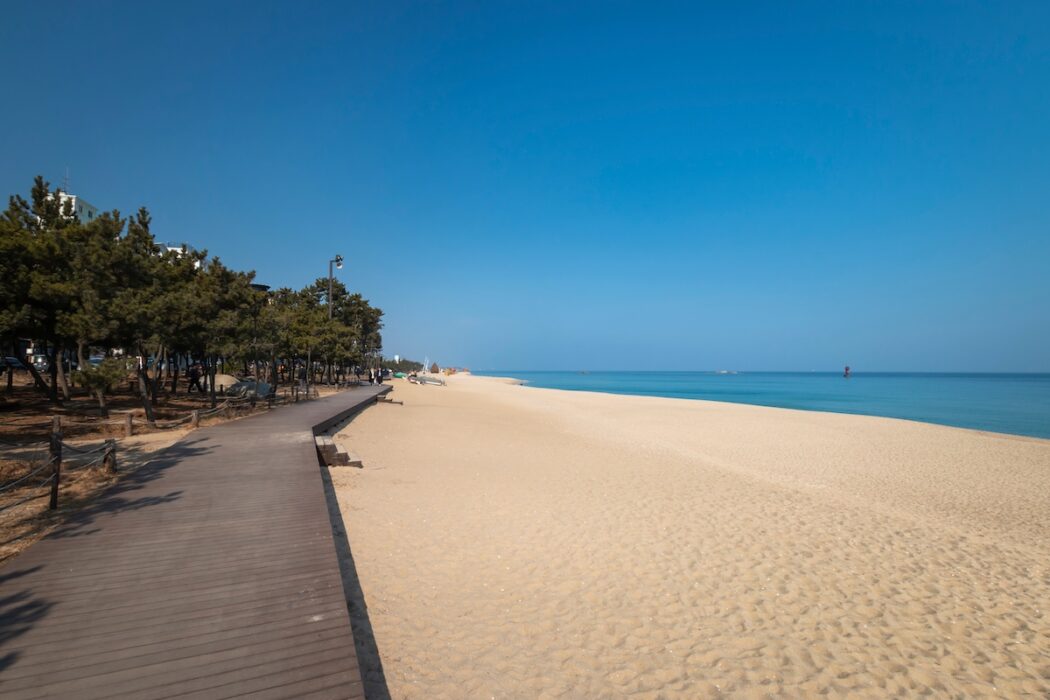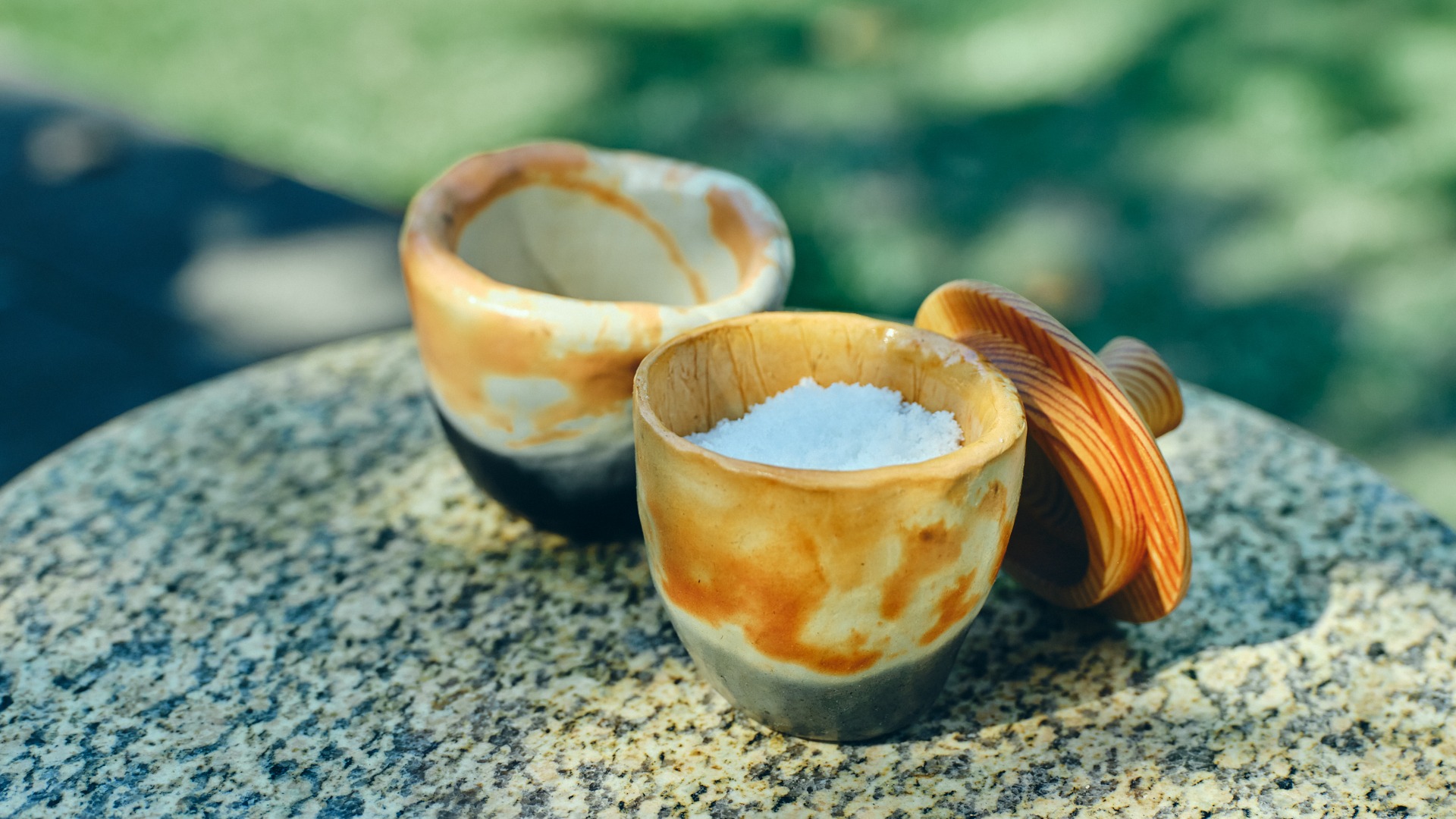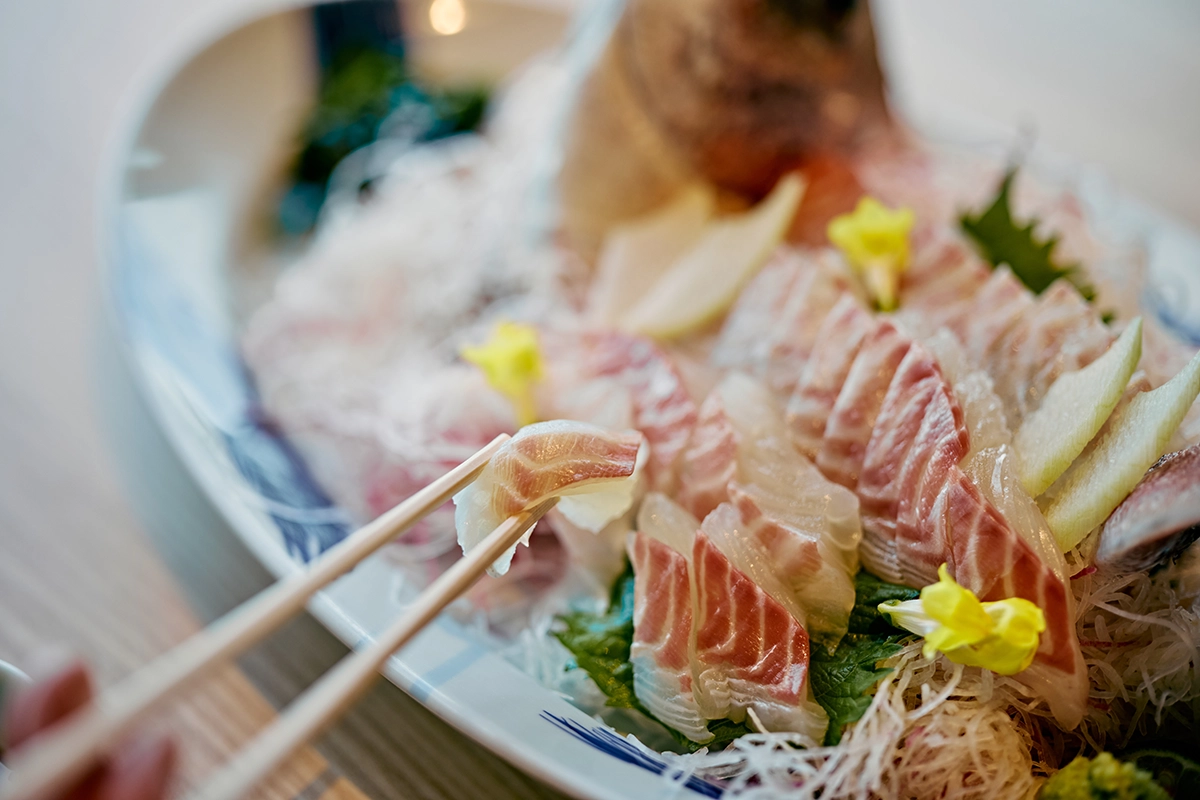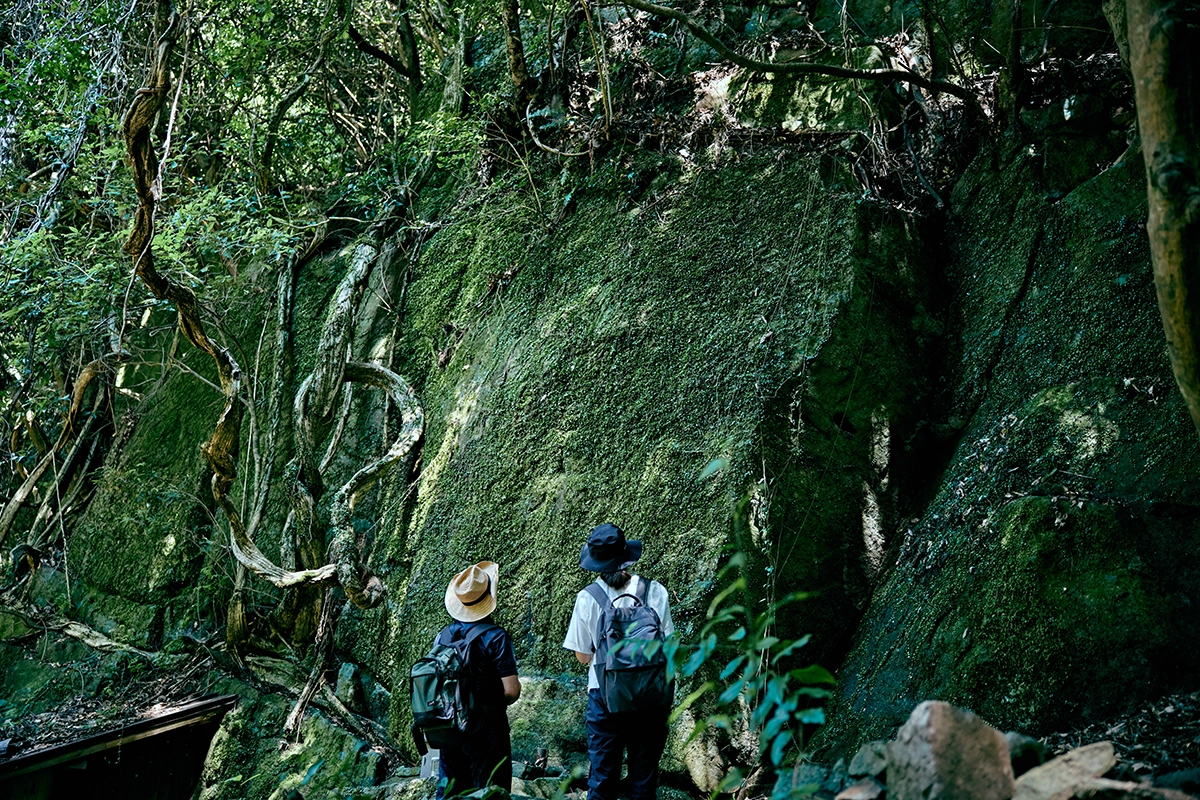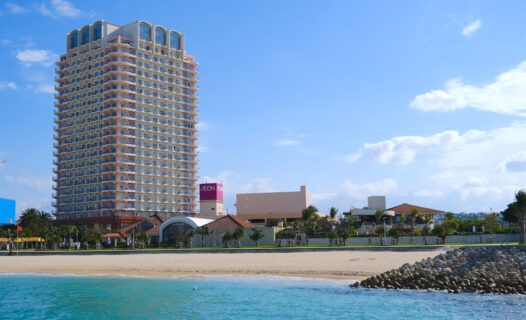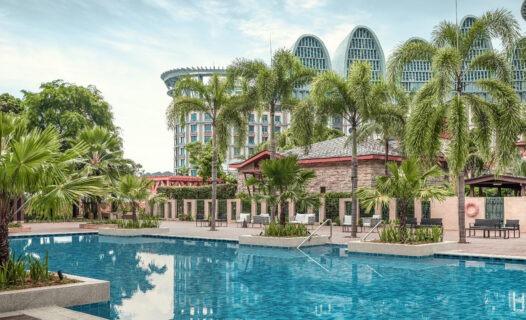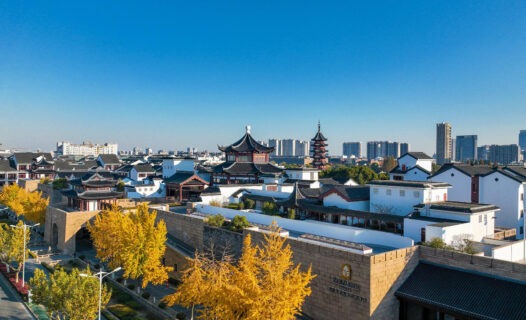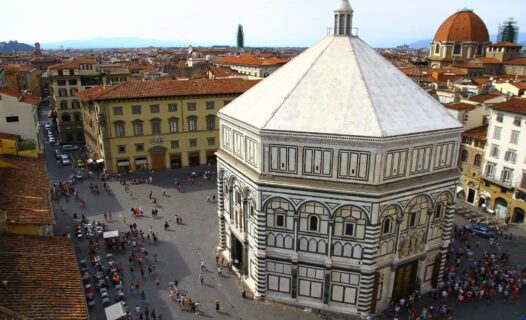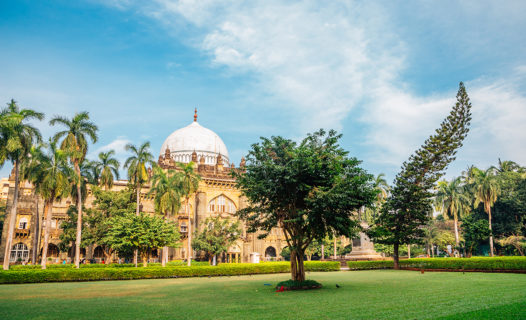Welcome to Jeonju: A Culinary Paradise
Welcome to Jeonju, a city that stands as a beacon of culinary excellence in Korea! Known for its rich history and vibrant food culture, Jeonju is not just a place to visit; it’s an experience that tantalizes your taste buds and immerses you in the heart of Korean cuisine. Every year, the city hosts the Jeonju Food Festival, a delightful celebration that showcases the best of what this gastronomic haven has to offer. With its streets lined with stalls filled with mouthwatering dishes and the aroma of traditional recipes wafting through the air, this festival is a must-visit for food lovers and culinary tourists alike.
Discovering Jeonju’s Culinary Heritage
Jeonju is often hailed as the birthplace of bibimbap, a dish that has become synonymous with Korean cuisine. But what makes Jeonju’s bibimbap so special? It’s not just the ingredients; it’s the history and culture that come together in a bowl. The city’s food scene is steeped in tradition, making it a perfect destination for those looking to explore jeonju traditional food and delve into the korean culinary traditions that have shaped the nation.
Historical Roots of Bibimbap: A UNESCO Cultural Heritage Dish
Bibimbap, which translates to “mixed rice,” is more than just a meal; it’s a symbol of harmony. Recognized by UNESCO as a cultural heritage dish, Jeonju bibimbap is made with a colorful array of vegetables, meat, and a fried egg, all served over a bed of warm rice. What sets it apart is the use of local ingredients, particularly the fresh vegetables and gochujang (red pepper paste) that bring a unique flavor profile to this classic dish. Each ingredient is carefully selected to reflect the season, making every bowl of bibimbap a celebration of nature’s bounty.
The Evolution of Jeonju Cuisine Through the Ages
The culinary history of Jeonju is rich and varied, influenced by the region’s agricultural practices and cultural exchanges throughout the centuries. From royal court dishes to humble street food, the evolution of Jeonju cuisine tells a story of resilience and creativity. As you wander through the streets of Jeonju, you’ll encounter a delightful mix of traditional eateries and modern restaurants, each offering their own take on classic dishes. This blend of old and new creates a culinary landscape that is both exciting and comforting.
Jeonju Food Festival: A Feast for the Senses
The Jeonju Food Festival is the cherry on top of this culinary cake, drawing food enthusiasts from all over the world. Held annually, this festival is a vibrant celebration of local flavors and culinary creativity. Expect to see everything from cooking demonstrations by renowned chefs to interactive food stalls where you can taste a variety of dishes. The festival is designed to engage all your senses, making it an unforgettable experience for anyone who attends.
Festival Highlights: Giant Bibimbap Performance and More
One of the standout events at the Jeonju Food Festival is the giant bibimbap performance, where chefs come together to create a massive version of this beloved dish. It’s not just a sight to behold; it’s a communal experience that brings people together in a celebration of food and culture. Alongside this, there are various performances, cooking contests, and food tastings that showcase the diversity of Jeonju’s culinary scene.
Interactive Experiences: Cooking Classes and Food Tasting
For those eager to roll up their sleeves, the festival offers cooking classes where you can learn to make traditional dishes under the guidance of local chefs. These hands-on experiences provide a unique opportunity to connect with Jeonju’s food culture and gain insights into the techniques that have been passed down through generations. And don’t forget to sample the numerous food stalls, each offering a taste of Jeonju’s best-kept culinary secrets!
Festival Schedule and Must-See Events
The Jeonju Food Festival is a whirlwind of flavors, sights, and sounds, and knowing what to expect can make your experience even more delightful. The festival typically spans several days, offering a packed schedule of events that cater to every culinary enthusiast’s taste. From early morning to late evening, there’s something happening at every corner of the festival grounds!
Daily Itinerary: What to See and Do Each Day
Each day of the festival features a variety of activities, so here’s a sneak peek at what you can look forward to:
- Day 1: Kick off your festival experience with the opening ceremony, where local dignitaries and chefs welcome attendees. Afterward, explore the food stalls showcasing regional specialties. Don’t miss the cooking demonstrations featuring traditional dishes!
- Day 2: This is the day for the giant bibimbap performance! Arrive early to snag a good spot and watch as chefs whip up a massive version of this beloved dish. Post-performance, enjoy live music and dance performances that celebrate Korean culture.
- Day 3: Immerse yourself in hands-on cooking classes! Learn how to make your own bibimbap or kimchi under the guidance of local chefs. In the evening, enjoy a food tasting event where you can sample dishes from various stalls.
Special Events Not to Miss: Parades and Performances
Beyond the food, the festival is a cultural spectacle! Look out for:
- Cultural Parades: Colorful parades featuring traditional costumes and music will fill the streets, showcasing Jeonju’s rich heritage. Grab your camera and capture the vibrant atmosphere!
- Food Competitions: Watch as local chefs compete in various cooking contests, showcasing their skills and creativity. Who will take home the title of Jeonju’s best chef?
- Evening Concerts: Wind down your festival days with live music performances. From traditional Korean music to contemporary bands, there’s something for everyone to enjoy.
Culinary Delights: Exploring Jeonju’s Food Scene
As you stroll through the festival, you’ll discover that Jeonju is a haven for food lovers. While the festival showcases the best of local cuisine, the city itself is brimming with culinary delights waiting to be explored.
Street Food Extravaganza: Must-Try Local Dishes
Jeonju’s street food scene is legendary, and the festival is the perfect time to indulge! Here are some must-try dishes:
- Jeonju Bibimbap: Of course, you can’t visit Jeonju without trying its famous bibimbap! Look for stalls that serve it in traditional stone bowls for that extra crispy rice.
- Choco Pie: A local twist on the classic treat, Jeonju’s choco pie is a soft, marshmallow-filled delight that’s perfect for a sweet snack.
- Grilled Eel: For the adventurous eater, grilled eel is a delicacy you shouldn’t miss. It’s smoky, tender, and packed with flavor!
Best Restaurants in Jeonju: Where to Dine
When the festival wraps up, don’t think your culinary adventure has to end! Jeonju boasts a range of restaurants that showcase the city’s food culture:
- Hanok Village Restaurants: Nestled in the picturesque Hanok Village, these eateries serve traditional meals in beautifully preserved hanoks (Korean traditional houses). The ambiance is as delightful as the food!
- Local Favorites: Check out places like Gogung and Jeonju Jungang Hoegwan for authentic bibimbap experiences. Locals swear by these spots!
- Modern Fusion Cuisine: For a twist on tradition, head to Oksan Seonghwa, where chefs blend Korean flavors with international influences for a unique dining experience.
A Day in Jeonju: Itinerary for Food Lovers
Ready to maximize your culinary experience in Jeonju? Here’s a suggested itinerary that will leave your taste buds dancing!
Day 1: Arrival and First Taste of Jeonju
Arrive in Jeonju and check into your accommodation. After settling in, head to the Jeonju Hanok Village for your first taste of local food. Stroll through the village, sampling street food like hotteok (sweet pancakes) and tteokbokki (spicy rice cakes) as you explore the charming alleys. In the evening, join a food tour to get insider knowledge about the city’s culinary history.
Day 2: Festival Highlights and Local Markets
Spend the day at the Jeonju Food Festival. Start with the giant bibimbap performance and then explore the various food stalls. Don’t forget to visit the local markets for fresh produce and handmade snacks! In the evening, enjoy a cooking class where you can learn to make your own kimchi or bulgogi.
Day 3: Cooking Classes and Cultural Exploration
On your final day, participate in a cooking class to master the art of Korean cuisine. Afterward, visit the Jeonju National Museum to learn about the region’s history and culture. Wrap up your trip with a leisurely dinner at one of Jeonju’s acclaimed restaurants, savoring the flavors you’ve come to love.
Engaging with Jeonju’s Food Culture
Jeonju’s food culture is not just about eating; it’s about community, tradition, and the joy of sharing meals. Visitors can immerse themselves in this culture through various experiences.
Learning Through Cooking Classes: Hands-On Experiences
Cooking classes are a fantastic way to connect with Jeonju’s culinary traditions. Many local chefs offer classes that dive into the history and significance of dishes like bibimbap and kimchi. You’ll leave not just with recipes but with stories and experiences that enrich your understanding of Korean cuisine.
Community and Food: How Locals Celebrate Their Cuisine
Food is a central part of life in Jeonju, and locals take pride in their culinary heritage. Participating in communal meals or local festivals can help you appreciate the warmth and hospitality of Jeonju’s residents. Try to join in on a local family’s meal if you get the chance; it’s a memory you won’t forget!
Practical Information for Festival Goers
Planning to attend the Jeonju Food Festival? Here are some essential tips to keep in mind!
Getting to Jeonju: Transportation Options
Jeonju is easily accessible by train or bus from major cities like Seoul and Busan. The KTX train is a quick and comfortable option, taking around two hours from Seoul. Once in Jeonju, local buses and taxis can help you navigate the city with ease.
Where to Stay: Accommodations Near the Festival
For a convenient stay, consider booking a hotel close to the festival grounds. Options range from traditional hanok accommodations to modern hotels. Check out the Where to Stay in Jeonju-si guide for recommendations!
Sustainable Practices at the Jeonju Food Festival
As the world becomes more conscious of sustainability, the Jeonju Food Festival is stepping up with eco-friendly initiatives!
Waste Reduction Initiatives: How the Festival is Going Green
The festival organizers are committed to reducing waste by providing recycling stations throughout the venue. Many food stalls use biodegradable packaging, so you can enjoy your meals guilt-free!
Supporting Local Farmers and Artisans: A Sustainable Approach
By sourcing ingredients from local farmers, the festival not only supports the community but also ensures that the food is fresh and flavorful. Look for stalls that highlight their local sourcing practices and consider buying handmade goods from artisans to take home a piece of Jeonju with you!
Fun Facts About Jeonju and Its Cuisine
Did you know that Jeonju is often referred to as the food capital of Korea? Here are some fun facts to impress your friends:
- Jeonju is home to over 800 different types of food, showcasing the region’s rich culinary diversity.
- The city has been recognized for its efforts in preserving traditional food culture, making it a UNESCO Creative City of Gastronomy.
- Jeonju’s bibimbap is so famous that it has inspired countless versions around the world, but nothing beats the original!
Commonly Asked Questions (FAQs) About the Jeonju Food Festival
Curious about the festival? Here are some common questions visitors often have:
What is the best time to visit the Jeonju Food Festival?
The festival typically takes place in the fall, but check the official festival website for specific dates and times!
Are there vegetarian options available?
Absolutely! Many food stalls offer vegetarian and vegan options, so everyone can enjoy the culinary delights of Jeonju.
How much does it cost to attend the festival?
Entry to the festival is often free, but some special events or cooking classes may have a fee. Be sure to check the festival’s website for detailed information on costs.
Conclusion
The Jeonju Food Festival is not just an event; it’s a celebration of culture, community, and the incredible flavors of Korean cuisine. From the rich history of bibimbap to the excitement of cooking classes and vibrant parades, Jeonju offers an unforgettable experience for food lovers and travelers alike. So pack your bags, bring your appetite, and get ready to savor every moment in this culinary paradise!

